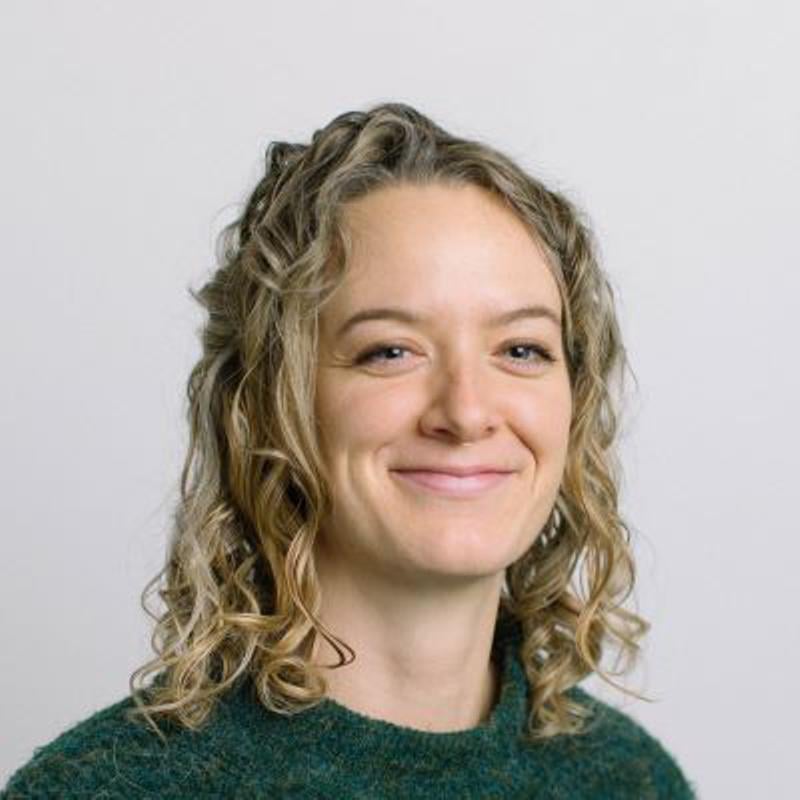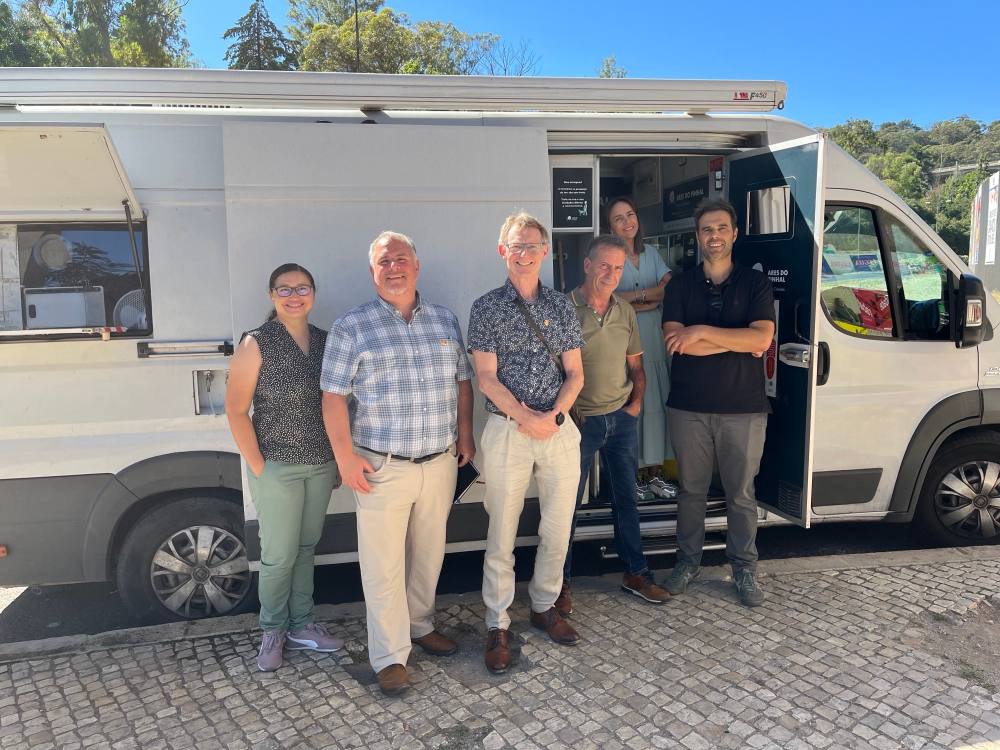NDP MP for Courtenay-Alberni Gord Johns spent a couple weeks in Portugal in July on an unofficial visit, meeting with policymakers and frontline workers to discuss the country’s harm reduction model.
Johns was travelling with Liberal MP Brendan Hanley, former chief medical officer of health for Yukon, who asked to join Johns’ trip. Johns says it has been “invaluable” to have a Canadian public health expert travelling with him.
Johns spoke with The Tyee July 14 from Portugal about what he’d learned on his travels, which he paid for himself.
He says his constituency has been particularly hard hit by the toxic drug crisis.
“I can’t count on two hands the number of people I know who have died, it’s unbelievable,” he says. “Kids that I've watched grow up, adults that I know, professionals that fell through the cracks and people that are recreational drug users.”
Port Alberni has been particularly hard hit by the toxic drug crisis. Over the last year Port Alberni has had over 1,000 deaths per million people, compared to all of B.C. which has had 438 deaths per million, Johns says. Portugal has had six deaths per million, he adds.
“We’re literally off the charts for overdose deaths per capita. I represent a riding very hard hit by the toxic drug crisis, especially for ages 19 to 44, who have a death rate almost five times the provincial average,” he says.
“More people died in Canada last year from overdose than the whole European Union,” Johns says. “We’ve got a lot to learn.”
Johns says it’s his job as a leader to find solutions, so he decided to head to Portugal and see if their model could be imported to Canada.
A patient-centred integrated care model
In the early 2000s there was a high rate of heroin use in Portugal, with around one per cent of the country or 100,000 people estimated to be dependent on opioids. At the same time HIV was spreading as people shared needles. Around 70 per cent of new HIV cases were attributed to intravenous heroin use.
This sparked an overhaul of the country’s drug policy. The national government introduced a “compassionate, health-based approach that is integrated top-to-bottom,” he says.
Despite B.C. dealing with a similar total population impacted by drug use — the Ministry of Health says around 100,000 British Columbians have opioid use disorder and are at high risk of accidental overdose if they get drugs from the unregulated illicit market — Canada doesn’t have a national strategy.
In late 2021 Johns tabled a private member’s bill to decriminalize certain substances, expunge certain drug-related convictions and create a national strategy to address the harms caused by “problematic substance use.”
The bill was defeated half a year later in the House of Commons.
A year later Canada still hasn’t created a national strategy or dedicated the “major public resources” needed to save lives, Johns says.
Johns says based on his calculations of the 2023 federal budget, the government has spent $512.6 billion on pandemic-related spending but only $800 million since 2017 on the toxic drug crisis.
To follow Portugal’s example Canada needs to decriminalize personal possession of illicit substances across the country, offer safe supply and treatment on demand and focus on recovery, prevention and education, Johns says, adding this was all outlined in his defeated private member’s bill.
“The Liberals constantly use jurisdiction as a barrier, but they proved through COVID several ways to work through this and to rapidly respond,” he told The Tyee.
This comes down to a lack of political “courage,” something Johns says the Portuguese model isn’t lacking.
Portugal uses a patient-centred integrated care model that focuses equally on treatment, harm reduction, rehabilitation and prevention, he says. This brings together law enforcement, psychologists, health-care workers, social workers, doctors — “everybody is working cohesively with NGOs on the frontlines to give people the best chance they can to live the best life they can,” Johns says.
In 2001 the country decriminalized all substances but set limits on quantity, so an individual is generally allowed to carry up to 10 days’ worth of a personal supply. Carrying more than that can lead to criminal charges. This wasn’t a dramatic change for the country’s drug policies because before 2001, police rarely criminalized people for drug use, instead mainly relying on fines to deter people, according to a 2014 review of Portugal’s drug policies.
In B.C. a person 18 years or older can carry up to 2.5 grams worth of certain substances without breaking the law.
Portugal’s harm reduction services mainly focus on opioid substitution treatment and needle and syringe exchanges, according to a 20-year review of the country’s drug policies.
Johns says he was impressed by the speed with which Portugal was able to scale up methadone distribution. Methadone is a long-lasting opioid used as a substitute for people addicted to heroin or morphine. The drug was affordable because the government used its own pharmaceutical labs and personnel to manufacture and scale up production, instead of asking pharmaceutical companies to manufacture the drugs for them, which he says is what Canada does.
In previous reporting about safe supply programs in B.C., The Tyee spoke with doctors, drug policy experts and people with lived experience who said offering people who use drugs alternatives to illicit street drugs has its perks and drawbacks. Offering people regular, safe access to alternatives to illicit street drugs can help people stabilize their lives and reduce the risk of overdose but the substitutions need to match the potency and combination of street drugs the person was using before, otherwise it won’t be effective, The Tyee heard.
In 2001 Portugal had 200 people using methadone and two years later they had 35,000 people using it, Johns says.
Johns says he got to spend a day riding around in the Mobile Low Threshold Methadone Program, also known as the Methadone Mobile Van.
There are two vans in Lisbon run by Ares do Pinhal, an NGO for social inclusion, that each distribute around 1,350 doses of methadone per day, Johns says. The van will drive to a set location, park for about an hour and greet the people from all walks of life who walk, drive or cycle up to it. People can also access chest X-rays, blood tests and hepatitis C treatment in the van. After an hour the van will drive to its next set location and repeat the process.
Johns says his time in Portugal has also helped dispel some myths he’s heard about the Portugal model, like how there’s mandatory treatment or how people can go to jail if they refuse treatment.
“The Portuguese officials were very clear with me: not a single person has gone to jail by not going to treatment,” he says.
A police officer can assign someone to a “dissuasion committee” with a member of the judiciary, a health-care worker and social worker. They help connect you with resources so it’s more about creating connections and ensuring patients are aware of what resources are available to them, he says.
Building relationships and being responsive
Portugal has a much more self-driven process where patients decide what they want, Johns says.
Forced treatment doesn’t work, he says. Instead there are programs such as the methadone van, which dispenses methadone but also gets a team out in the community to help connect people with housing and harm reduction supplies and to ensure people are staying connected with their families.
Treatment is also viewed as a long-term support system, unlike in Canada, where treatment is institutional and people can stay for 30 to 60 days before having to leave, he says.
It’s important to build relationships so that people can access support when they need it, Johns says. When the economy crashes, like in 2012 and again recently with inflation, there’s a “huge spike of relapses,” he says.
Because of the success of the Portuguese model the government had been scaling back resources as demand for treatment beds shrank and the country grappled with its own health-care crisis due to a lack of health-care workers.
Now that relapses are rising the country is once again scaling up its national model and preparing for the arrival of synthetic drugs like fentanyl, Johns says. “They’re really forward thinking,” he adds.
Johns says he is “dumbfounded” that Canada still doesn’t have a national strategy to reduce overdose deaths despite B.C. declaring a public health emergency in April 2016. There have been 36,442 toxic drug deaths in Canada between January 2016 and December 2022, which is around 20 deaths per day, according to Health Canada. Since the public health emergency was declared 12,264 British Columbians died from toxic drug poisoning, according to BC Coroners Service.
Johns and Hanley aren’t the only politicians who have visited Portugal. In July 2017 then-health minister Jane Philpott and then-justice minister Jody Wilson-Raybould, as well as Canada’s current chief public health officer Dr. Theresa Tam visited the country. At the time Wilson-Raybould said she learned a “great deal” and would “continue our review of Canada’s criminal justice system.”
Since that visit 10,897 British Columbians have died due to unregulated drugs, according to the BC Coroners Service.
“I’m not going to let up until the government responds,” Johns says. ![]()
Read more: Health, Rights + Justice

















Tyee Commenting Guidelines
Comments that violate guidelines risk being deleted, and violations may result in a temporary or permanent user ban. Maintain the spirit of good conversation to stay in the discussion and be patient with moderators. Comments are reviewed regularly but not in real time.
Do:
Do not: